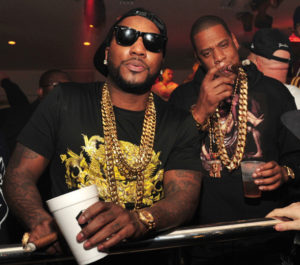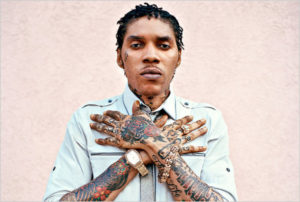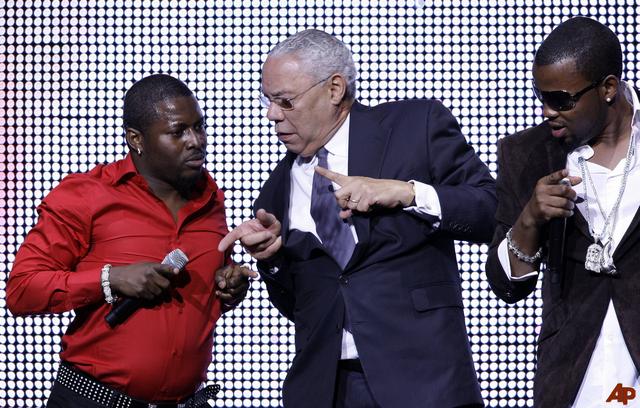Poverty is a strong inspiration to make great music but also one that exposes everything – the good, the bad and the illegal.
When you grow up without anything in your pocket, and in a system that denies you of a means to turn your circumstances around, your options are very limited. It’s a cold, cold world on the streets and when most of the examples of successful people you can see and touch are those who’ve found ways to cheat that cruel system, the red pill of crime and short-cuts is so much more enticing than the blue pill of an honest living.
With music birthed in those conditions, there is a tendency to celebrate those who are able to make it out as local legends, even if they got there by criminal means. So in American hip-hop, the drug dealer and gang leader have long been celebrated, in Jamaican dancehall, street violence and organized crime is constantly being glorified, while in Nigerian street music, the G-boy has been king of the underground for a long time.
Falz, who has made a name as a social crusader, recently spoke against the celebration of internet fraud in Nigerian music. Using 9ice’s widely popular single “Living Things” as a reference point, the bold rapper took a swipe at the subculture.
Ordinarily, the difference between good and evil ought be black and white but a lot of Nigerians found shades of gray in which to stand and respond to Falz, with many using the rapper’s privileged background as the son of a wealthy and well-known lawyer as a pretext. But the one part many Nigerians missed is that Falz himself has been a victim of our collective identity as suspected internet fraudsters on his trips abroad, and he probably felt the need to speak up against those helping to shape that identity.
The split reaction to Falz’ comments exposes the dichotomy between the way the struggling Nigerian and the upper middle-class in Nigeria view crimes with financial motives. Whereas a few see the G-boy as nothing more than a common thief and feel uncomfortable celebrating his lifestyle, it will surprise you to know that a lot of Nigerians view the G-boy as some sort of Robin Hood taking money away from the ‘wicked’ rich and empowering himself. We somehow see him as the victim of years of bad governance, high unemployment rates and abject poverty. That’s why a lot of us quietly root for G-boys the same way many Trump supporters did for their man during the elections, even when it is the socially unacceptable thing to do.
Also, a lot of us can’t relate to the crimes G-boys commit because we are not their principal victims – foreigners and faceless ‘rich’ people are. We know more people who commit internet fraud than we know people who are victims of it, that’s why we’ll lynch a thief in the market today because we know he could steal from us tomorrow but we are sympathetic to Evans and Dammy Krane because we’ll probably never be the targets of their ambitious crimes. Add our soft spot for internet fraudsters and our indifference towards their crimes, to these guys living lavish lives that most of us actively dream about, and you understand why the G-boy subculture has been accepted so openly and, probably, will never go away.
In responding to Falz, 9ice claims that he was not singing about fraud but about a way of life. Basically implying that you’d understand if you understood and defending, what seems like, the indefensible.
https://www.instagram.com/p/BVp00mklxlC/
It is hard to say exactly when the G-boy subculture became this acceptable but studying the shift in the morality of popular music in the 90’s and 2000’s could give us the best clues.
When old heads whine about how Nigerian music had ‘meaning’ back in the days, they don’t mean that there weren’t songs that affected society negatively, they just mean that there were several alternatives out there that tried to provide a balance. Every old artist wasn’t a saint, far from. They too were young and overambitious at a certain point of their lives. Drug dealing and money laundering was often talked about, especially among fuji and juju artists of that era – and of the era before – but was rarely vocalized in the music. Actually, in another lane entirely, the likes of Nico Gravity, Daddy Showkey, Daddy Fresh and Baba Fryo who came from the ghettos of Lagos used street dance and their own music to advance social issues.
In between the millenniums there was a significant growth in access to information technology around the country. Computers became more pervasive, computer literacy was on the rise, cyber cafes became big business and so many Nigerians got on the internet for the very first time. Between 1999 and 2005, internet penetration grew astronomically in Nigeria but not everyone who came online had good intentions. According the FBI, Nigeria accounted for over over 15% of the total internet crime activity reported in 2002.
Granted, fraud didn’t start with the proliferation of the internet but young people now had more access than ever before to commit financial crimes. The toxic combination of bad intentions and improved access to the internet was the birth of the Yahoo-Yahoo boy, named after the American-based internet company whose email platform and instant messaging service was ubiquitous at the time and became a favorite medium for their communications.
Particularly in the early days, Yahoo-Yahoo found a home in the poverty-stricken ghettos of Lagos as it offered a shorter cut to success than music and dancing. Little wonder that many of the youth in those parts shifted their attention from the microphone to a computer screen and the ghetto music soldiers of 10, 15, 20 years ago do not have many successors today.

When explaining the reason why he left the game unceremoniously, Ajegunle’s own Baba Fryo explained:
The system has changed. At present, we don’t have raw talents in the music industry, people doing music now are the Yahoo and drug boys. They took over the industry. A Yahoo boy can just enter the studio because music is easy now unlike before when you would have to pass through many processes to release a song.
Internet fraud was ruling the streets in the late 90’s and early 2,000’s but it still wasn’t celebrated very much in pop culture. A shift happened in 2003, however, when the iconic Osuofia in London movie starring Nollywood veteran Nkem Owoh was released. It was a comedy about a villager from Nigeria who traveled to London to receive his share of an inheritance left for him by a deceased relative. The movie became so popular that its theme song “Chop Your Dollar” became a nationwide hit in its own right.
https://www.youtube.com/watch?v=D_YjvC4ndzM
The song was a satirical jab at the Yahoo-Yahoo operations that Nigerians had developed a bad name for in international circles and contained playful threats from Nkem to steal from his unsuspecting white victims. It was tongue-in-cheek, as were most references to Yahoo-Yahoo in pop culture in the early 2,000’s. JJC and his 419 Squad even attempted to re-purpose the word in those days and control the narrative by trying to turn a negative word to connote something positive.
A second shift happened in 2007 with Olu Maintain; when a dance step that symbolized the Yahoo boy lifestyle started gaining popularity in clubs in Lagos and London, a number of artists made songs to capture that moment. The most popular by far was ex-Maintain star, Olu, whose “Yahoozey” became one of the most iconic songs in Nigerian music history. The song and dance became so big that no greater a man than the former Secretary of State of the US, Colin Powell, danced with Olu on stage in one of the most ill-advised moves a senior US official will ever make.
https://www.youtube.com/watch?v=0Jh8tCns-Bg
The Yahoo-Yahoo boy has now become the G-Boy and Olu Maintain will go down as the father of the sub-culture in Nigerian music – it was he who elevated the dark art from the underworld to the mainstream. His success emboldened other artists to embrace the lifestyle in their music.
Kelly Hansome followed Olu closely and took it to a whole other level – if Olu was the opportunistic father of G-Boy subculture, who had an unexpected child, then Kelly was the very proud uncle. Kelly embraced everything about the lifestyle, he called his record company Creamynal Records, titled his second album 2 Much Money and made the insidious “Maga Don Pay”, its lead single.
The song was even bolder than “Yahoozey” as the singer offered wholehearted thanks to God for one of his deals becoming successful. The content was shocking but we danced to it, it was just entertainment, after all.
In the years that followed, both artists have tried to clean up their mess with Olu Maintain constantly denying that his song glorified internet fraud and Kelly even going as far as claiming that Maga is an acronym for ‘Man And God Always’ and recording a gospel version of “Maga Don Pay” years after, but the damage was done.
Today, the sub-culture is alive and thriving. Street songs used to be nuggets of wisdom from conscientious, ghetto soldiers but now some of the biggest songs on the streets glorify a criminal lifestyle and sing the praises of those who’ve been successful in doing it. But even away from the streets, a number of popular rappers, like Erigga and Yung 6ix, openly boast about committing internet fraud in their music. It gets even deeper, receipts from the illicit trade fund a significant part of the Nigerian music industry with G-boys becoming label owners, sponsors, show promoters and even artists, in a bid to either ‘rinse’ their money or use music as a strategic decoy for their activities.

Jeezy and Jay-Z
However, being a huge fan of rappers like Jay-Z, Pusha-T and Jeezy who rap about Black America’s own D-boy culture, it will be hypocritical of me to wag my finger at Nigerian G-boys as if they were children I was telling to stop playing on the playground. But at least those rappers paint the full picture of the drug game – crime and consequence – and not just the pretty side. That way, if you really want to sell drugs, at least you can’t say you weren’t told that you could end up in jail or, worst still, in a coffin. Nigerian artists often present only the triumphs and rarely talk about the travails.
That said and inasmuch as I love those rappers, I acknowledge the fact that their music is part of the reason why millions of African-Americans are in jail for drug trafficking and drug-related felonies. I realize that their music contributed to the moral decay of black people in America and the acceptance of crime as a way out of the ghetto. I also realize that I can love Jay-Z, Jeezy and Pusha-T with all of my heart but still want better for my own people here in Nigeria.

Vybez Kartel was sentenced to life imprisonment in 2014 for murder
Life and art have a funny way of imitating each other. The truth is, the criminal lifestyle these artists sing and rap about eventually catches up, maybe not this year or next, but it will. So many of your favorite ex-drug dealing rappers have either served jail time or have been very close to doing so or have people very close to them doing so. A lot of the leads that aids investigators in their work is found in the music that they make and the connection between artists and their kingpin friends. It’s the same thing for a lot of Jamaican dancehall artists, where street violence is part of the music culture.
We are already seeing what is happening with the recent arrests of Sauce Kid and Dammy Krane in the States. All it takes for the same thing to happen locally is an EFCC Chairman or an Inspector General of police who’s hip to youth culture to create a department dedicated to monitoring pop music, in the same way the NYPD created the infamous hip-hop police department in the 90’s, and want to make scapegoats out of a few artists. Then, my dear friends, the jig will be up.
When that happens, and not if, Nigerian artists who are stuck in the G-boy subculture may have to finally face the music both at home and abroad.


